There are a number of characters in literature that exhibit supreme goodness in their behavior and a knightly sense of duty and compassion towards others. We know a true hero is someone who selflessly helps others achieve their goals without a second thought. They may even sacrifice their own well-being so that their friend, or even a total stranger, may find happiness. The problem with the literary archetype is that it focuses on the good; and a story without conflict is not a story at all. But when you throw your hero into a hostile environment where everyone is telling him or her that supreme goodness will be your downfall, then you have a story about a saintly fool. The saint is seen as a fool because he or she won’t conform to what society thinks is right for them.
There are two protagonists in particular that have developed similar lifestyle patterns in terms of the deeply rooted qualities of their personality. Prince Myshkin from Fyodor Dostoyevsky’s The Idiot (1869) and Laurence (Larry) Darrell from W. Somerset Maugham’s The Razor’s Edge (1944) are perfect examples, in that they both represent all that is good and beautiful in the world, and they both embody the white knight archetype. But with all the good that is in these two heroes, it is difficult to do something right without making someone else unhappy.
In The Idiot, after having been treated for a severe case of epilepsy in a Swiss sanitarium, Prince Myshkin (26 years old) returns to St. Petersburg, Russia. A lot has changed in four years. Society seems darker and more greedy. The grim reality is that the upper-class will most likely tell you that the only way to become wealthy, or at least retain financial stability, is if you don’t play by the rules. The Prince enters into this world with a single suitcase and a few rubles. He has high-spirits, but lacks the forward-thinking momentum and ambitious attitude that permeates throughout St. Petersburg. The only mission he has is to find the distant and only remaining relative of the Myshkin nobility.
Similarly, Larry from The Razor’s Edge is a twenty year old man without a concrete plan in his life. He is engaged to Isabel, whose mother (Mrs. Bradley) and uncle (Elliott) are an extremely wealthy family living in America. The story in The Razor’s Edge is told from the perspective of a writer in the year 1919 who develops a friendship with Elliott. Most of the characters are members of high-society. Elliott has a reputation for building relationships with all sorts of important business men, artists, and politicians. We have a pretty good understanding of what people in the story want, and we can expect that their ambitions will drive them towards success. The only person that is out of place in this world is Larry Darrell. His time in the army as a pilot during WWI significantly changed his perception of the world. In the beginning of the story, we know that something tragic happened to him, but we aren’t quite sure what it is. There is also something awe-inspiring and peculiar about him. He is the kind of person who doesn’t join a conversation. He doesn’t need to speak. His smile says everything, as is pointed out by the narrator: “it occurred to me that he had a smile of great sweetness. It was not a brilliant, flashing smile, it was a smile that lit his face as with an inner light” (ebook, 72).
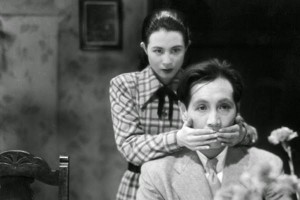
The Idiot 1951 film adaptation by Akira Kurosawa
While Larry’s personality changed after the war, the Prince had been affected by numerous epileptic fits. Today, the technical term for what the Prince most likely suffered from is temporal lobe epilepsy. The Prince poetically describes his epileptic condition: “There was a stage in it just before the fit itself (if the fit occurred while he was awake), when suddenly, amidst the sadness, the darkness of soul, the pressure, his brain would momentarily catch fire, as I was, and all his life’s forces would be strained at once in an extraordinary impulse. The sense of life, of self awareness, increased nearly tenfold in these moments, which flashed by like lightning. His mind, his heart were lit up with an extraordinary light; all his agitations, all his doubts, all his worries were as if placated at once, resolved in a sort of sublime tranquility, filled with serene, harmonious joy, and hope . . .” (225).
Throughout the novel, the Prince experiences an indescribable sense of well-being and self-awareness. A certain light illuminates his soul. He sees the good in everything. He doesn’t even hold grudges against anyone, even with people like Rogozhin, whom the Prince meets in the first chapter on the train to St. Petersburg. Rogozhin plans to use a large sum of money that he inherited to win over the beautiful Nastasya Filippovna, and outbid Ganya Ardalionovich from his arranged marriage with her.
In The Idiot, the Prince has a high emotional intelligence and positive outlook on life, which is partly due to his illness. In the Razor’s Edge, Larry Darrell came back from the war with an eagerness to acquire knowledge. This new philosophy was instigated by a close encounter with death. His friend, who was also a pilot, sacrificed his life to save Larry. The possibility of death had never crossed Larry’s mind. He was young and too naive to comprehend that death could happen to anyone at any moment. After realizing that life can be cruel and meaningless, Larry decided that he needed a purpose. Two years in Paris is the answer. To do what? To loaf.
This is problematic for the Bradley’s. Isabel cannot wait two years to get married to Larry. A man must work, because it’s a matter of self-respect. One simply cannot live without money. For Larry, money doesn’t define a person. His idea of happiness is finding meaning in his own life – that is, to understand himself. Because of his refusal to participate in the development of his country, “they look upon him as a joke. They josh him a lot and it exasperates them that he doesn’t seem to care. He only laughs” (ebook, 118).
Even for a white knight, it is hard not to be insulted. To be totally carefree and non-aggressive, you might as well be an idiot who fails to comprehend the insult. Larry, as well as the Prince, are intelligent enough to interpret almost any situation. Larry’s charm overpowers any insulting remark, and we can tell because his smile is powerfully sincere. He simply doesn’t care what other people think about his beliefs. Similarly, Prince Myshkin is constantly belittled by the “important people” of society. Rather than slapping Ganya on the face after being called an idiot, the Prince forgives him.
The true testament to the Prince’s good nature is that he actually wants to help people, even when he constantly finds himself in the company of people who are greedy and corrupt. He is called an idiot. Everyone laughs at him, partly because he is not afraid to speak freely and share details in his life that are personal and embarrassing. A remarkable instance is the first conversation the Prince has with Mrs. Epanchin (i.e. the woman who is the only remaining relative in the Myshkin nobility) and her three daughters (Alexandra, Adelaida, and Aglaya).
The Prince tells them about his journey from Russia to Switzerland, and how his illness made him unbearably sad and confused: “and what roused me was the braying of an ass in the town market. The ass struck me terribly and for some reason I took an extraordinary liking to it, and at the same time it was as if everything cleared up in my head . . . Since then I’ve had a terrible fondness for asses” (56). The sight of something so simple was able to clear his anxiety about visiting a foreign country. At the same time, it is amusing because of the Prince’s eagerness to turn something ordinary into something special. The Prince places a lot of emphasis on the “ass”, and it amuses the three daughters. Rather than being insulted, the Prince joins in and laughs with the daughters.
Although Larry and the Prince are both extremely virtuous, neither are able to make everyone happy. According to Larry, “sometimes one can’t do what one thinks is right without making someone else unhappy” (ebook, 190). After the two years of living in Paris, Larry is still in pursuit of finding himself. Isabel gives him an ultimatum. If he doesn’t come back to America, then the marriage is off. Larry loves Isabel very much. He even tries to convince her that she can live with him as his wife without spending a lot of money. She ultimately refuses to adopt his lifestyle, because nobody can live on three thousand dollars a year (which is provided to Larry by a caretaker) and be happy. If Larry were to go back to America and take the high paying job that was promised to him, he would be betraying himself. Instead, Larry spends over a decade traveling the world and searching for answers to his own questions.
In The Idiot, the Prince’s selflessness and innocence sometimes makes other people around him feel shameful about themselves. For instance, the Prince offers to take Nastasya’s hand in marriage as a way to save her from a (short) life of misery with Rogozhin. In response, Nastasya states: “How are you going to live, if you’re so in love that you’ll take Rogozhin’s kind of woman . . .” (163). Nastasya categorizes herself as Rogozhin’s kind of woman. In other words, how can someone as innocent and foolish as the Prince love someone as despicable as Nastasya? The Prince tells her that he will work hard to make Nastasya happy. He also explains that he has a letter from Moscow informing him that he may have inherited a very large fortune. Ultimately, Nastasya runs away with Rogozhin . . . Not for his money, but because she is a dishonest woman who deserves to be with a scoundrel.

Although wrongfully accused, Socrates sacrifices himself by drinking hemlock (i.e. his death sentence). He was given the chance to flee, but chose to stay, most likely because he would be committing a unprincipled act against the state.
Sacrifice is perhaps the saintliest deed. The white knight doesn’t examine the value of a person to see whether they are worth saving. A person who continuously despairs, for instance, is worth saving because they have a chance to turn their life around. The white knight doesn’t have to think about how much the sacrifice will cost. In The Razor’s Edge, Larry plans to marry a childhood friend named Sophie. After losing her husband and child in a car accident, Sophie fell into an abyss of sex, alcoholism, and opium. She refuses to deal with the tragedy. Larry, on the other hand, believes that he can truly help her. Both the writer and Isabel (who by now is married and has two children) do not share Larry’s sentiment. While the writer admires that when you sacrifice yourself, “man for a moment is greater than God, for how can God, infinite and omnipotent, sacrifice himself”, the consequences of the action inevitably “whirls its victim to destruction” (ebook, 513). Isabel thinks that Larry is making a mistake because people like Sophie don’t change. He is going to be unhappy. His quest for wisdom will remain undone. In many ways, the white knight is but a saintly fool.
Prince Myshkin experiences the tortuous demands of sacrificing love for something as delicate as a Chinese vase. Although there is an instance of irony when the Prince accidentally breaks a Chinese vase in a fit of excitement, I am talking about Nastasya Filippovna. Earlier, the Prince was unable to convince Nastasya that she wasn’t Rogozhin’s “kind of woman.” Since then, the Prince developed feelings for Aglaya, the youngest and most beautiful daughter of the Epanchin family. In part three, chapter eight, she even talked about running away with the Prince to travel the world. His love for Aglaya was genuine, and they even planned on getting married. However, in part four, chapter eight, Nastasya returns and complicates matters. During a heated argument between Aglaya and Nastasya, the Prince is forced to make a choice. He chooses Nastasya; Not because his love for her is greater, but because his concern for her well-being calls for his immediate attention. As a result of his sacrifice, the Epanchin’s break all relations with the Prince.
Without a doubt, Prince Myshkin from Dostoyevsky’s The Idiot and Larry Darrell from Maugham’s The Razor’s Edge are two great examples of main characters who embody the white knight archetype. Both characters are represented as saintly fools who will sacrifice their own happiness to help others. For the Prince, sacrificing his love was all for nothing. Nastasya breaks off the engagement and runs away with Rogozhin, thus sealing her fate and saving the Prince from a life of misery. For Larry, the sacrifice was also fruitless. Sophie leaves without a trace, and Larry resumes his pursuit of truth and freedom. Both the Prince and Larry are perceived as fools because of their unconventional ways of life. Larry refuses to be defined by how much money he makes, and the Prince thinks that beauty will save the world. Who knows, maybe beauty will save the world. Either way, does that really make them fools?
Want to know more about us? Sign up to learn more about our process, our projects, and upcoming premieres at Dostoyevsky Reimagined: The Making of Notes from the New World. You’ll gain exclusive access to our members-only content and the incentives.
 Follow this developing story through our social media on Twitter, Facebook, Google+, Pinterest, Tumblr, Instagram and Goodreads
Follow this developing story through our social media on Twitter, Facebook, Google+, Pinterest, Tumblr, Instagram and Goodreads
References:
Dostoevsky, Fyodor. The Idiot. Translated by Richard Pevear and Larissa Volokhonsky, Everyman’s Library, 2002.
Maugham, W. Somerset. The Razor’s Edge. Vintage Books, 2003 (ebook edition).

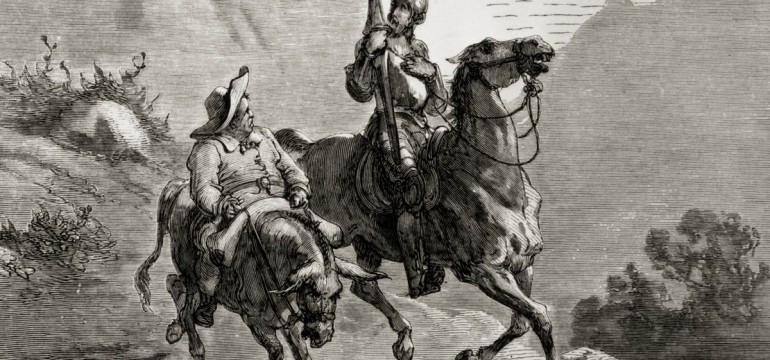
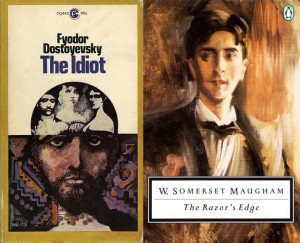
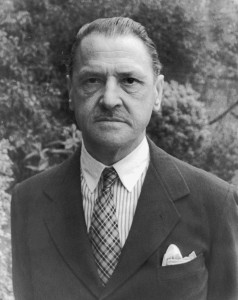
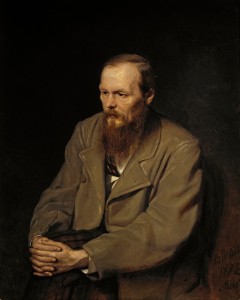
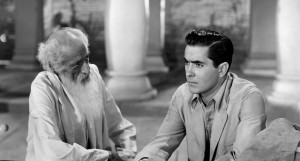
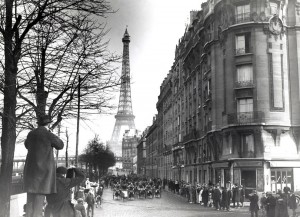
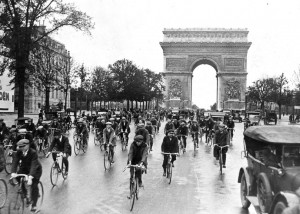

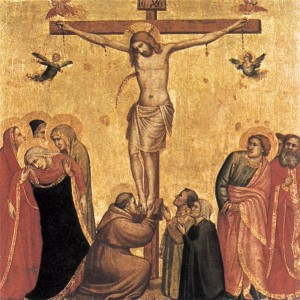
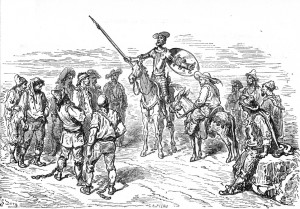





Leave a Reply